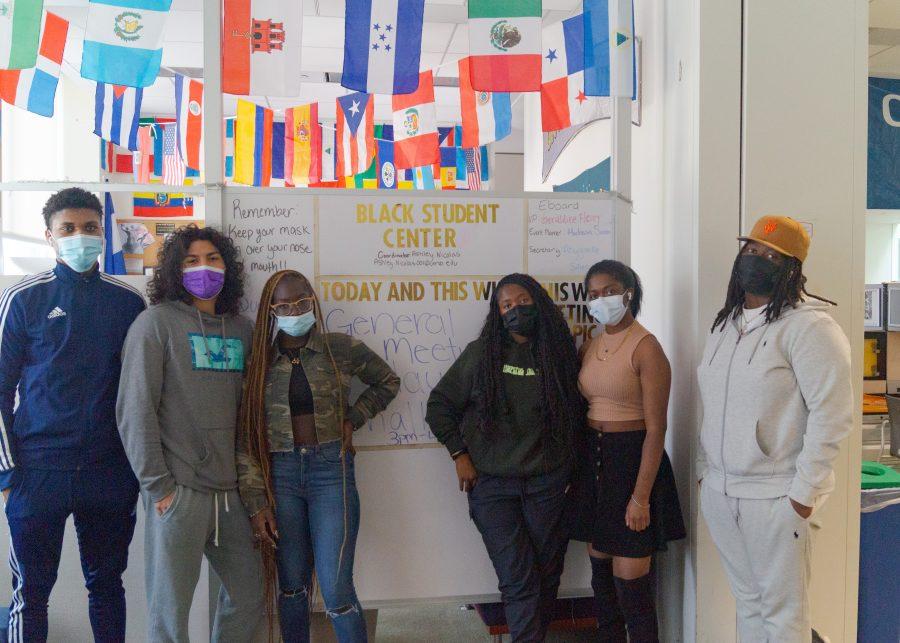**TRIGGER WARNING: this article contains mention of racist speech and other sensitive rhetoric surrounding race.**
On Sept. 17, Black students and Black student groups at UMass Amherst received racist emails that prejudicially claimed, among other things, that Black students “speak in some broken form of Ebonics” and that Black students “possess a lacking intelligence along with an elementary grasp of subjects that most of us learned in high school.”
As a Black woman, I am tired but not even remotely surprised. I shouldn’t be writing this article in 2021.
According to the Oxford Handbook, “It is now a matter of consensus that the earliest forms of AAVE emerged in the southern American colonies, permanent settlement of which began with Virginia in 1607, then Maryland in 1634, continuing with the Carolinas and later, Georgia.” The racist misconception that African American Vernacular English is broken English obscures the fact that it is a centuries-long dialect with its own convoluted grammatical structure. Despite the white denigration of AAVE, it’s also white people who appropriate African American Vernacular English.
This email claiming that African American students lack intelligence does not configure in its analysis that, according to an article published in NPR on Feb. 29, 2019, predominantly white school districts receive $23 billion more in school funding than school districts who primarily serve students of color. This article is based on a report published by EdBuild, a nonprofit that researches the distribution of school funding. The report expounds that “for every student enrolled, the average nonwhite school district receives $2,226 less than a white school district.” Additionally, EdBuild identifies 21 states; among the states identified are California, New Jersey and New York, where predominantly white school districts receive more funding than school districts configured primarily of students of color. African American students don’t lack intelligence; this is made evident by the long lineage of African American intellectuals that emerge from historically Black colleges and Universities and predominantly white institutions. All the while, schools primarily configured of Black students are routinely deprived of the monetary funds necessary to establish rigorous curriculums, small class sizes, and retain qualified and experienced teachers. Black students can grasp intellectually challenging content; it’s just that Black students are expected to do this within an education system that was designed to deliver us an inferior education.
This email is made even more laughable considering that it argues Black people have inferior intelligence while the email is replete with grammatical errors. That begs the question, who is really the intellectually inferior one here? It’s definitely not the Black people this email issues diatribe against.
To the white people reading this, here is a fact I will never let you forget: We. Built. This. Country. The labor of the African American community and the labor conducted by Black people within the wider African Diaspora is what created the wealth of this country and what allows it to continually function in your favor. So the first thing that should be coming out of any white person’s mouth is a million THANK YOU’s. The appropriation of Black culture, which Black people are routinely penalized for exhibiting, is what gives you the social capital to be considered “mad lit” and “for the culture.” Like, tell me you’re a culture vulture without telling me you’re a culture vulture.
Black students, like myself, are not going to be intimidated. Do you know why? We will not be intimidated because this is our place and there is nothing Klansmen in digital clothing can do to change that fact. We will always continue to create our own safe spaces whilst occupying hostile environments. While we take the time to regroup amidst another bout of racist violence, we will rebound.
When we do, we’ll be ready to welcome all Black students with open arms.
https://www.pbs.org/newshour/show/how-hair-discrimination-impacts-black-americans-in-their-personal-lives-and-the-workplace
https://www.oxfordhandbooks.com/view/10.1093/oxfordhb/9780199795390.001.0001/oxfordhb-9780199795390-e-5
https://www.npr.org/2019/02/26/696794821/why-white-school-districts-have-so-much-more-money
Please…Black students are the blueprint
Students in the Black Student Center standing in unison. Photo by Mel Berilo / Mass Media Staff
Contributors
Gabriella Diplan, Contributing Writer
Mel Berilo, Photographer

